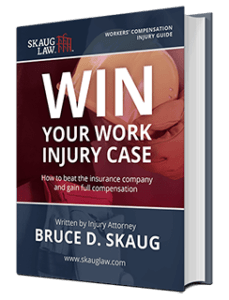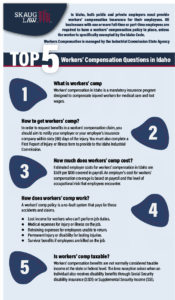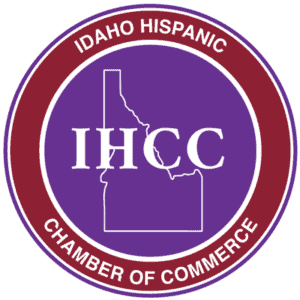Idaho Workers’ Compensation Lawyer: How & Why We Can Help
Workers compensation laws differ between states across the U.S. These laws give work injury victims a way to recover medical costs and lost wages. Sometimes, however, getting access to the compensation you are owed after work-related injuries is frustrating and discouraging when all you want is assistance. As the premier Idaho workers compensation lawyer firm, we have won the largest amount of money for a worker’s compensation injury recovery in state history.
Barriers such as complicated laws, disagreements with your employer, and confusing documentation may make it harder to get the money you are owed without bringing on some extra help.
What to Do When Injured at Work
If you have been injured at work or an injury has become apparent over time as you continue to do your job, it is important to take the appropriate steps as soon as possible. Not only is your future health on the line, but your ability to file for a workers’ compensation claim may be affected if you wait too long.
- Get Medical Treatment Even if you were treated and released at an emergency room, you should have a thorough exam by your doctor soon after the incident.Injuries can be hidden at first. Rotator cuff tears in the shoulders, spine injuries, and concussions are frequently missed in the emergency room.If injuries are not noted by a physician, it may be hard to recover compensation for them.
- Do Not Miss Your Work Injury Deadlines In Idaho, there are time limits for reporting and filing work injury claims. You must report your injury to your employer within 60 days.Your employer must file a First Report of Injury with the Idaho Industrial Commission. This is the “court” system for workers’ compensation cases in Idaho.If you miss this reporting deadline, it will be very difficult (if not impossible) to file a workers’ comp claim. There may be some exceptions to this deadline if the injury remains hidden but can be linked to the job; however, those types of claims are harder to prove and are instead handled on a case-by-case basis.
What is workers compensation insurance?
Workers’ compensation in Idaho is a mandatory insurance program designed to compensate injured workers for medical care and lost wages. Employees who are involved in workplace accidents or who suffer from occupational diseases are eligible for benefits.
Who pays for workers compensation?
An employer’s cost for workers’ compensation coverage is based on payroll and the level of occupational risk that employees encounter. Idaho workers’ compensation law requires that the employer must pay the entire cost of coverage and is not permitted to deduct any portion from employee wages.
Workers’ compensation in Idaho is a mandatory insurance program designed to compensate injured workers for medical care and lost wages. Employees who are involved in workplace accidents or who suffer from occupational diseases are eligible for benefits.
Covered Employees
In Idaho, both public and private employers must provide workers’ compensation insurance for their employees. All businesses with one or more full-time or part-time employees are required to have a workers’ compensation policy in place, unless the worker is specifically exempted by the Idaho Code (see below).
If you are not sure who your employer’s insurance carrier is or whether your employer has workers’ compensation insurance at all, you can check your employer’s coverage at the Idaho Industrial Commission’s website.
Who is exempt from workers compensation insurance?
The following types of workers are exempt from workers’ compensation coverage under Idaho law (meaning that employers do not have to provide workers’ comp insurance for these individuals):
- household domestic workers
- family members living in the employer’s household (sole proprietors only)
- sole proprietors; or working members of a partnership or limited liability company; or corporate officers who own at least 10% of the stock (and who are directors, if the corporation has directors)
- employees covered under Federal Workers’ Compensation Laws
- pilots of agricultural spraying or dusting planes (under certain conditions)
- real estate brokers and salespersons when paid solely by commission.
- volunteer ski patrollers
- officials of athletic contests in secondary schools (grades 7-12 only)
- casual employees – for work which occurs occasionally or at irregular times and which is not related to the type of business normally conducted.
- employment as an outworker – a person who works on materials at a location not under the control of the employer, and
- family members of a sole proprietor who do not live in the proprietor’s household.
- For more information on who is eligible to receive workers’ comp benefits, see our article on who is eligible for workers’ compensation.
How does workers compensation work in Idaho?
The Industrial Commission is the Idaho state agency responsible for:
- Regulating workers’ compensation activities in Idaho, including companies licensed to issue workers’ compensation policies.
- Ensuring that employers have workers’ compensation coverage as required by law.
- Settling disputes between injured workers, employers, and insurers.
- Deciding appeals for unemployment decisions from the Idaho Department of Labor.
- Assisting injured workers by supporting their medical recovery while facilitating a timely return to employment that is as close as possible to the worker’s pre-injury status and wage.
What does NOC mean in workers compensation?
NOC stands for Not Otherwise Classified. If you see this on a Workers Comp policy or premium audit, it means that the Classification Code is non-specific. This means that the underwriter or premium auditor could not place your business in any other Classification Codes other than the more general ones.
It is advisable that you look further into this general type classifying of your business. You may find other classification codes that would describe your business more accurately.
For instance, Store Employees, NOC means that the classification of your employees could not be associated with a more specific code. This is one of the most common mistakes that we see on policies and audits by the insurance carriers. These Class Codes are much more expensive as the NOC Classification Codes are seen as riskier. The more specific Class Codes can be a more accurate assessment of the employees covered in the policy.
If you receive a policy or premium audit with Not Otherwise Classified on it, there could possibly be a more specific Class Code. The previous example could be more specific by using the Store: Clothing or Wearing Apparel Classification Code. This type of Class Code will always be less expensive than the Not Otherwise Classified Code.
What Can You Get in Compensation After a Workplace Accident?
The Idaho legislature has set laws for the financial benefits an injured worker can recover. These benefits include:
- Past, ongoing, and future medical care
- Part of your wage loss during your medical recovery
- Part of your mileage costs for trips to and from medical care
- Money benefits for permanent injuries
- Disability benefits and sometimes lifetime monthly checks
- If you are unable to return to your old job, retraining costs, and a paycheck while you train.
- Sometimes you can win an attorney fee payment if the employer or insurance company is unreasonable.
- Getting Help from Workers’ Compensation Lawyers in Idaho
- Getting Help from Workers’ Compensation Lawyers in Idaho
Idaho workers can use the court and claims system under the Idaho Industrial Commission to handle their workers’ comp issues, but they might not want to enter the arena alone. If your claim is denied or you do not feel you got the benefits that you deserved, it might be time to escalate your claim.
Worker’s compensation can become complicated very easily, and it won’t always be easy to see if you’re getting all you deserve. There are a few reasons why bringing an experienced personal injury lawyer on board for your case might be a great idea.
Should I Get A Lawyer for Workers’ Compensation?
The process of getting a workers’ compensation claim properly filed can be difficult, time-consuming, and exhausting depending on the exact issues that arise. An experienced lawyer who has worked on workers’ compensation cases before can make that process less stressful and more efficient.
Additionally, all documents and settlements exchanged through the Idaho Industrial Commissions court are legal and binding documents. It is always advisable to have a lawyer look over this type of documentation before agreeing.
If you are rightfully owed money, one of our lawyers in Nampa can help you to identify what needs to be done to make your claim a success.
How Much Does A Workers’ Compensation Attorney Cost?
The amount charged by a specific attorney will vary between law firms. At Skaug Law, our attorney fees usually run at around 25% of the recovered funds when dealing with workers’ compensation cases. No charges are settled before your case is complete, and you only pay these fees if you win your case.
What Is Usually Included in A Workers’ Comp Settlement?
If you or your lawyer decide to negotiation a lump sum settlement when there is a dispute, the terms of the settlement should include the following:
- Expected future medical costs.
- Unpaid impairment balance
- Money towards future wage earnings being decreased.
- Retraining costs, if applicable
Clear delineation of what, if any, workers’ comp benefits will continue after settlement.
Essentially, the settlement should cover all potential future costs the worker believes may arise from their injury and situation.
How Long Do Workers’ Comp Settlements Take?
Settlements for workers’ compensation will take varying amounts of time depending on when mediation or hearing dates are available with the Idaho Industrial Commission. Filing for either mediation or a hearing that will lead to a settlement can happen anytime after the Notice of Injury and Claim for Benefits Form is filed with the IIC.
If an agreement is reached in a mediation, it can be settled at the earliest available mediation date. If the two parties cannot reach an agreement and they decide to file for a hearing instead, it may take weeks or months to receive a decision.
Is A Lump Sum Workers’ Comp Settlement Taxable?
Generally speaking, workers’ compensation benefits are not taxable. However, tax law is complicated and differs from person to person depending on their overall tax situation. The best way to find out if your settlement is taxable is to work with an accountant or an IRS representative.
Will Workers’ Comp Pay for Retraining?
Yes, there are ways you can receive compensation for retraining after being injured on the job. The Idaho Department of Vocational Rehabilitation has money available for retraining costs, and the Idaho Workers’ Compensation law also has some provisions that may allow for you to retrain for up to six months if you are no longer able to do work in your former position.
Sneaky Adjusters and Insurance Company Tricks
Insurance companies and adjusters use many tactics to limit what they have to pay in workplace injury cases.
Some use their doctors to return injured people to full work duty too early, so the insurance company does not have to pay for more treatment.
Whether you are dealing with a difficult employer, a tricky insurance company, or an at-fault third party, you can win maximum money for your injury.
Do not give ANY recorded statements to an insurance representative or anyone else until you have had a free consultation with a Nampa workers’ compensation attorney.
You are taking great risks if you move forward without professional help.
Let a Skaug Law work comp attorney guide you through each step and find the available insurance sources to pay for your damages.
Entering into Mediation
If you do not believe you were given the workers’ compensation benefits you are entitled to, you may want to enter into an informal mediation session to settle. During these sessions, both parties can discuss the difference of opinion and attempt to come to an agreement.
While the meeting is run by a mediator, they will not have the power to compel either party to make a specific decision. For that reason, it can be highly beneficial to have a lawyer on your side to make an argument for an agreeable settlement. If an agreement is reached, it will be written up and signed.
Mediation is not a required step when dealing with a complicated workers’ comp claim, but it is a preferable option. 90% of mediation cases are settled favorably for both parties through the process, so it is often worth the try.
Workers’ Compensation Hearings in Idaho
An injury case may lead to a trial, but in the workers’ compensation system, it is called a hearing.
There is no jury but there is an administrative law judge who is called a “referee.” Unlike other trials, the hearing often does not lead to a decision right away. Instead, the referee may order additional sworn testimony by doctors and others.
So, after your hearing, there may be other testimonies still to be gathered before the referee makes a decision.
This means that based on how the hearing goes, it may be important to gather and submit additional documentation. Navigating this alone is difficult; having an experienced Nampa workers’ compensation lawyer on your side will smooth out the process.
Why You Need An Attorney
Workplace injuries bring a unique set of difficulties. Contacting an attorney for a free assessment of your situation is a good idea, especially under the following circumstances:
You require surgery after a workplace injury.
Your injuries are severe enough that your doctor believes you will not return to your state of health prior to the injury. You may be awarded disability compensation.
You are unable to perform the job you held prior to your injury or believe you could do some other type of work.
You are no longer able to work at any job at all.
You disagree with the findings of the insurance company, your workplace, or your state’s workers’ compensation board, or you believe you are not receiving the benefits you are entitled to as an injured worker.
- You have a pre-existing medical condition that may throw light on your case.
- Your employer disagrees with decisions made by the state workers’ compensation board.
Call for a Free Assessment Today!
If you are still unsure whether or not you need an attorney to represent you during a workers’ compensation claim, calling our offices costs you nothing and will help you gain some peace of mind.
Most people have not had enough experience to fully understand the worker’s compensation process, and having an attorney represent your interests means you can concentrate on getting well again. Our attorneys can handle the rest.
To talk with a friendly attorney about your case, contact us at Skaug Law today! As is always the case at Skaug Law, you pay nothing unless we win on your behalf.











